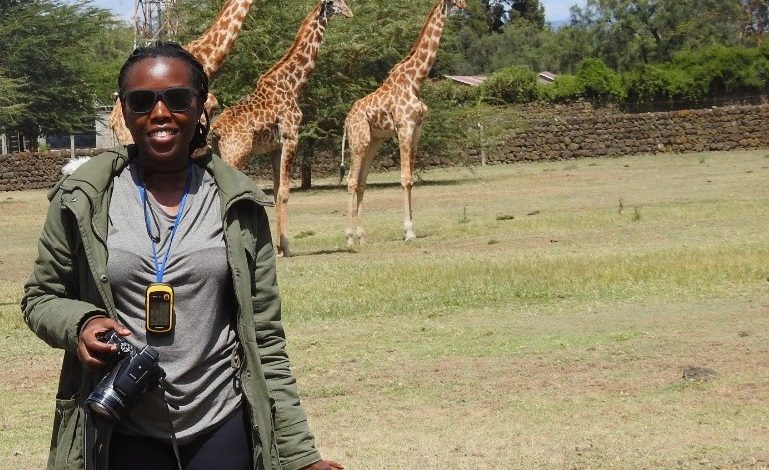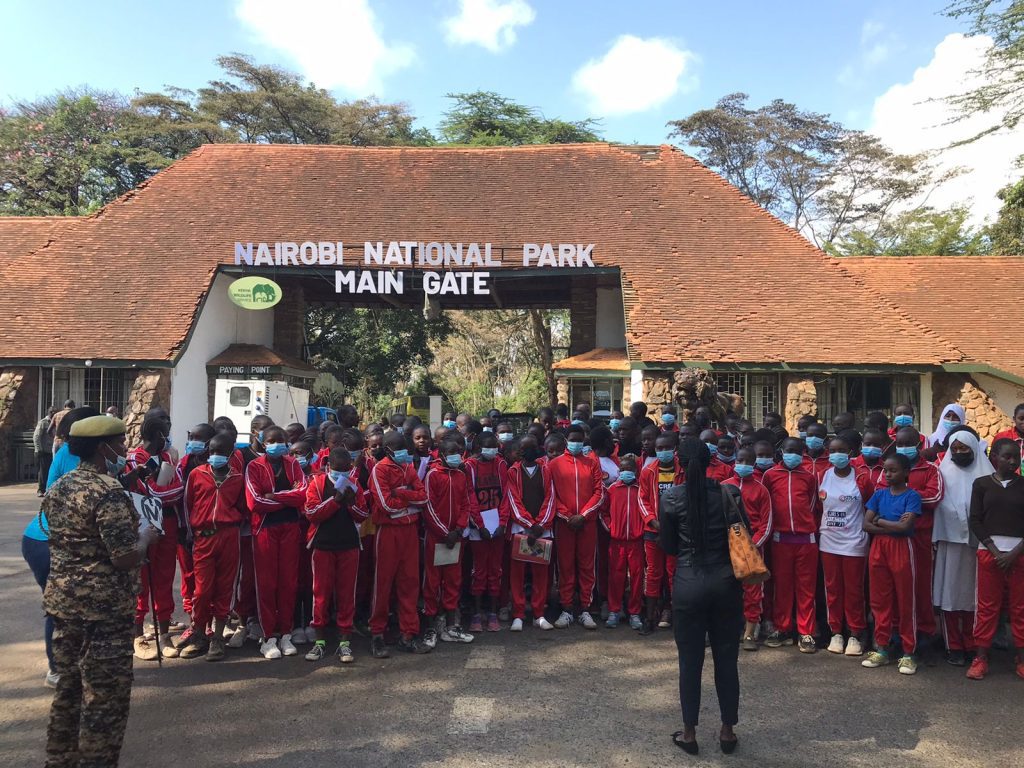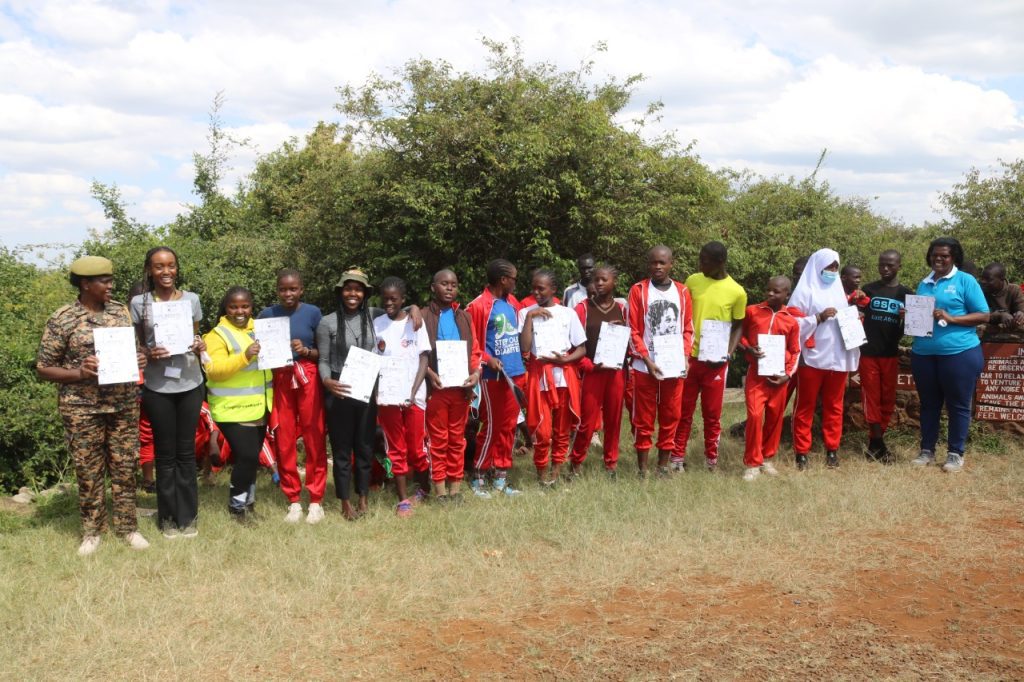Janet Kavutha: Saving the giraffe species

Janet Kavutha, the programs officer at the Giraffe Conservation Foundation (GCF) describes herself as a wildlife researcher since her work entails working to find out the challenges that giraffes across Africa face. In the role, Janet employs science, inclusion of all stakeholders and conservation education to curb challenges such as disease, poaching, climate change and habitat loss that are threatening the existence of giraffes. Thanks to these efforts, Janet has created an enabling environment that has paved the way for the replenishment of the giraffe population which had been on the decline for some time. In her role as wildlife researcher she has had some exciting tasks. For instance, Janet has been part of the team that translocated giraffes from South Africa to Mozambique where none no longer existed.
Janet’s entry into wildlife research was rather peculiar. Firstly, efforts to get a job or internship in an institution relevant to the Integrated Forestry Resource Management degree she studied at Egerton were unsuccessful. When she landed an internship with Friends of Nairobi National Park (FoNNap) she was relieved. After her internship, the organization offered her a full-time job as the administration officer in 2020.
Her work at FoNNaP opened Janet to the challenges that both communities and Wildlife face due to poor conservation approaches. For instance, existing approaches did not fully address the human wildlife conflict. In May 2021, the Kenya Wildlife Service (KWS) invited her to take part in the national wildlife census. The census gave her access to veteran wildlife researchers and ushered her into the world of wildlife research. It also got her interested in the welfare of wildlife and she toyed with the idea of pursuing a career in the same. Her wishes came true after she was recommended for an opportunity as a wildlife researcher with Giraffe Conservation Foundation (GCF), mainly due to her conduct, enthusiasm and hard work during the census. She accepted the opportunity with both hands and vowed to find a way to bring peaceful co-existence between humans and wildlife.
READ ALSO: Serah Munguti: Taking environmental conservation a notch higher
As the programs officer at GCF, Janet leads the education program for children. She assists schools to develop proposals that allow them to secure grants from the organisations she works with. Once the schools win these grants, they utilise it to send their pupils to conservation areas where they learn more about giraffes and wildlife conservation.
“Witnessing these children separate from their ignorance on matters wildlife conservation is very fulfilling. I particularly enjoy seeing just how much they have absorbed after a session; they can literally narrate important facts about various species thereafter,” Janet says.

Additionally, Janet works directly with the community rangers and scouts in wildlife data collection and monitoring. She has trained these groups that play an integral role in conservation at the south of Nairobi National Park.
She introduced these individuals who care for the giraffes in this area to technology that they can use to safeguard them. The technology helps to assess the health of giraffes and other threats that could otherwise be missed.
” I am glad that I took a short course in GIS and also interned in a company that taught me the importance of technology in conservation, this is how I have been able to do an exceptional job transferring such skill.” Janet explains.
Within the one year that the 29-year-old has worked with GCF, she has studied giraffes in Naivasha and established how many they are and the exact threats that these giraffes face. Her findings led her to establish more environmental clubs in schools in Naivasha so children can learn how they can also contribute to safeguarding the giraffes.

While her job sounds exciting, it has not been all roses for the mother of one especially because she works in a field that is dominated by men and expatriates. For example, she has heard demeaning remarks form her male counterparts as well as racist utterances from individuals who feel entitled to the conservation scene in Kenya.
“At first I felt a bit intimidated working with people and in this case men and wazungu who have been in the field for long, secondly who are more educated than me, so in most cases I would play small so as not to seem like I’m questioning,” Janet narrates.
However, thanks to the guidance received from her bosses, Janet has been able to rise above the intimidation by learning how to act and respond professionally to any intentions aimed at belittling her. The lessons enable her to work well, especially with seniors in government who demand professionalism at all levels of engagement.
Regardless of all the ups and down, Janet is not afraid of dreaming of big. She aspires to be a person who, through her work, can make an impact.
“I want to spark positive mindset about wildlife to kids, I want to resonate with communities and co create wildlife conservation solutions together and lastly lead research projects in the most ethical ways,” she reveals
Janet may not know it but her persistence and pursuit of her passion is inspiration to other upcoming conservationists. Not many people stay put when huddles come at them however, by watching and reading Janet’s story this norm is likely to change for the better.
Featured Image: Janet on a normal work day. Photo||Courtesy







